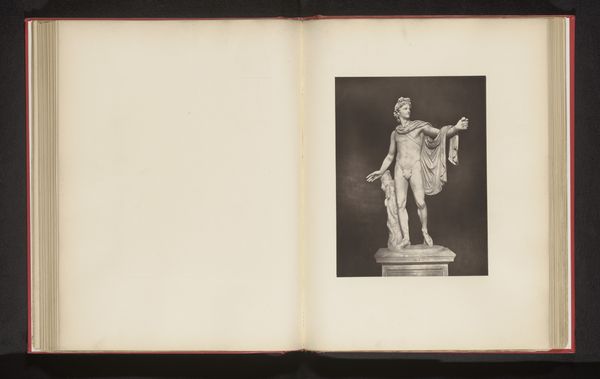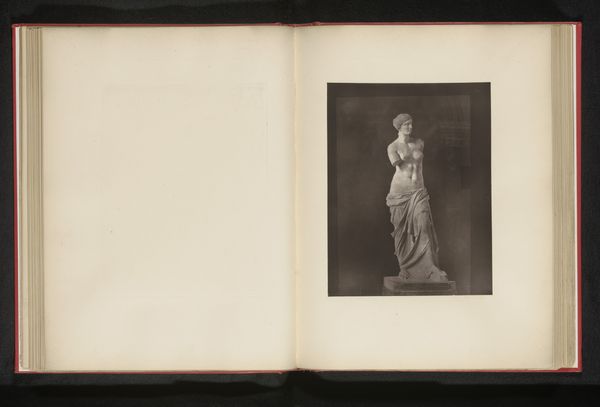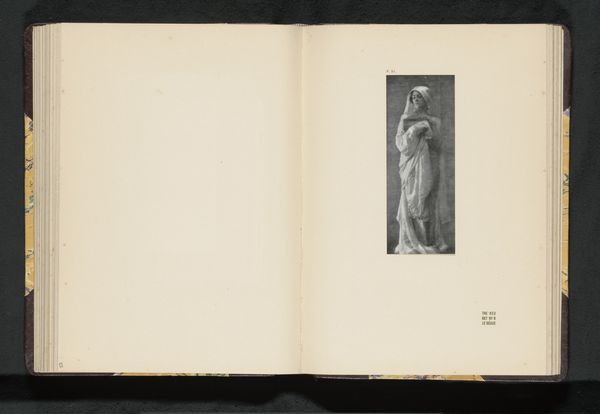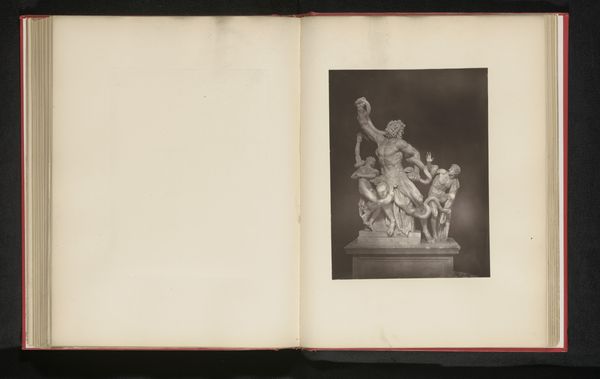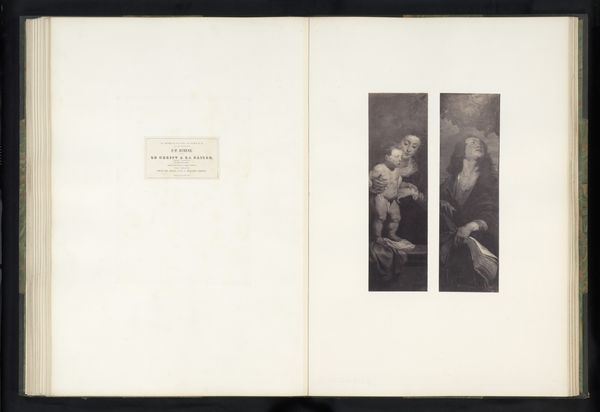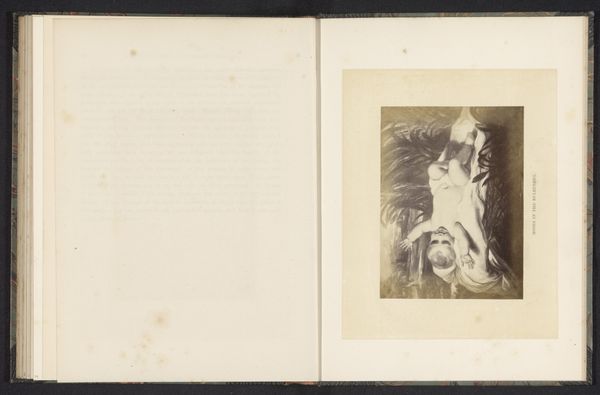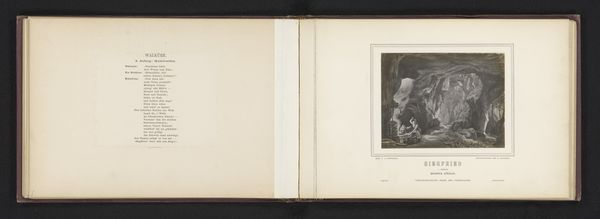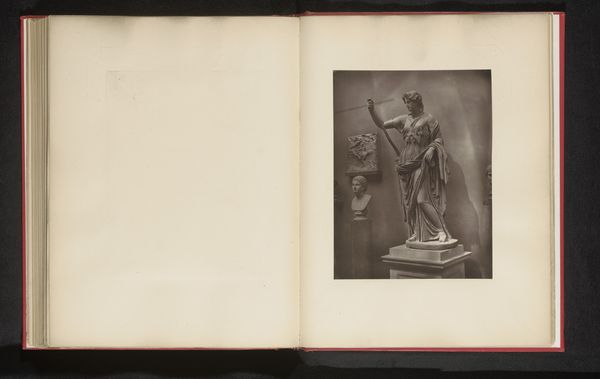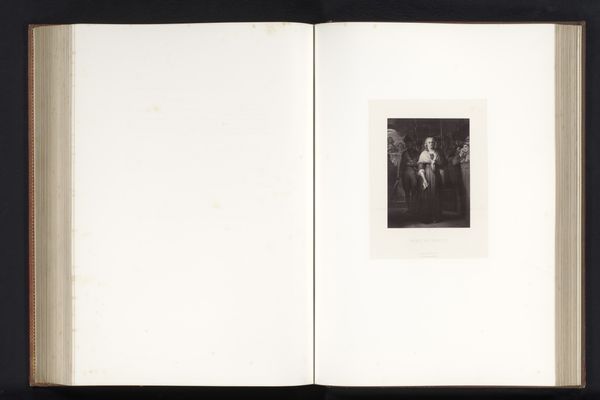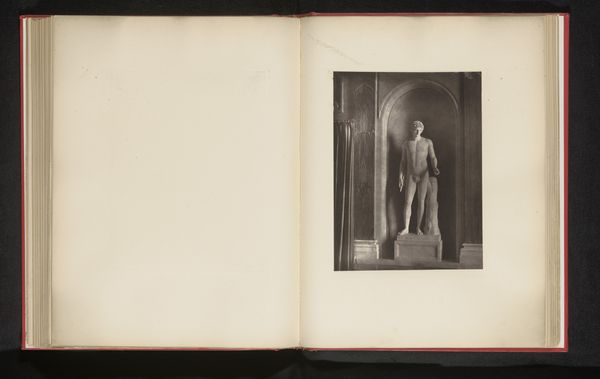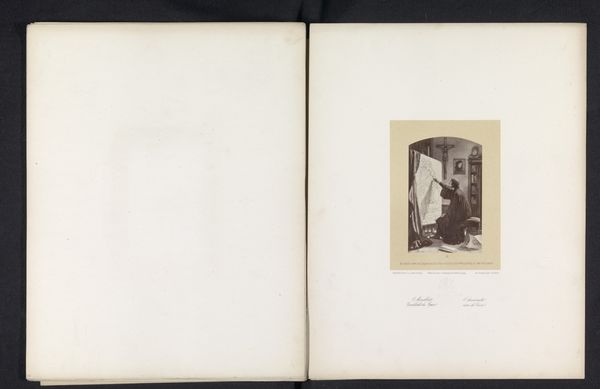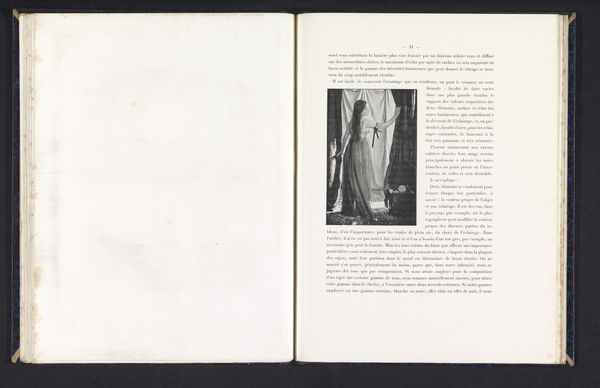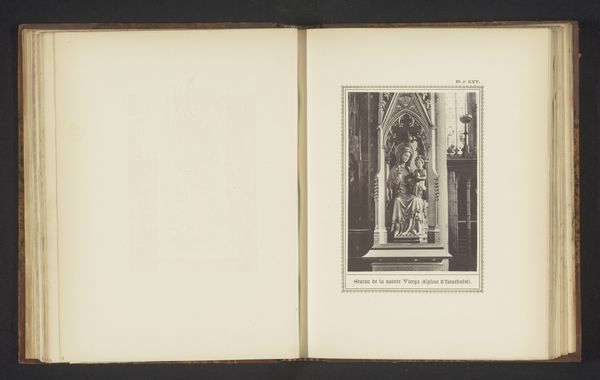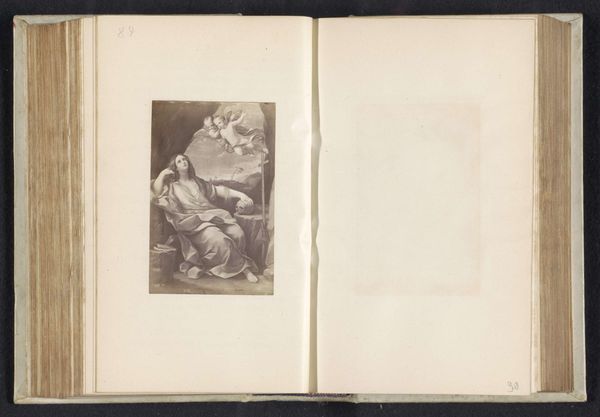
Standbeeld van Antinoüs als Dionysos in de Vaticaanse Musea te Vaticaanstad before 1860
0:00
0:00
print, photography, sculpture, gelatin-silver-print
#
portrait
# print
#
greek-and-roman-art
#
figuration
#
photography
#
sculpture
#
gelatin-silver-print
Dimensions: height 90 mm, width 63 mm
Copyright: Rijks Museum: Open Domain
This image captures a statue of Antinous as Dionysus, housed within the Vatican Museums. Antinous, the beloved companion of Emperor Hadrian, is here immortalized as the god of wine and ecstasy, his idealized form embodying youthful beauty and divine power. Note the thyrsus he holds—a staff entwined with ivy and topped with a pine cone—a quintessential symbol of Dionysian revelry. This emblem, however, is not confined to the ancient world; traces of its ecstatic energy appear in Renaissance paintings and even in modern artistic expressions, each time subtly altered. Consider how this symbol evolves, reflecting changing cultural attitudes towards pleasure, spirituality, and the irrational. The longing and melancholy associated with the ephemeral nature of beauty and life itself evoke a powerful emotional response. This statue is not merely an object of aesthetic admiration; it is a vessel of human desires, fears, and memories, continually resonating across time. The image is therefore locked into a non-linear, cyclical progression that resurfaces, evolves, and takes on new meanings in different historical contexts.
Comments
No comments
Be the first to comment and join the conversation on the ultimate creative platform.
